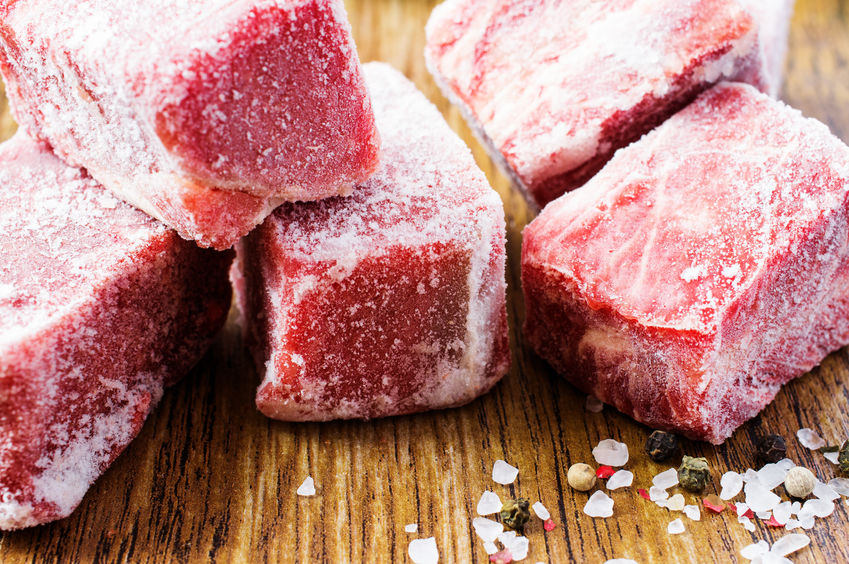Yes, you can eat moose meat. It is lean and nutritious, popular in many cuisines.
Moose meat is a healthy and sustainable protein source. It has a mild flavor and can be prepared in various delicious ways, making it a versatile option for meals. Whether grilled, stewed, or roasted, moose meat offers a unique dining experience for those looking to explore alternative protein sources.
Furthermore, moose hunting is regulated to ensure sustainability and conservation of the species, making it an ethical choice for meat consumption. We will delve into the nutritional benefits, culinary uses, and environmental aspects of consuming moose meat.

Credit: www.facebook.com
The Delight Of Moose Meat
Moose meat is a popular delicacy in many cultures, known for its lean and tender qualities. It is a rich source of protein, iron, and essential nutrients, making it a nutritious and delicious choice for meals. With its unique flavor, moose meat can be cooked in various ways, from roasting to grilling, offering a delightful dining experience for meat lovers.
Flavor Profile
The rich, savory flavor of moose meat is a true delight for the taste buds. Lean and tender, it offers a unique taste that is both hearty and satisfying.
Culinary Uses
Moose meat is versatile in the kitchen, perfect for a variety of dishes. From succulent roasts to hearty stews, its bold flavor complements a wide range of recipes.
Nutritional Benefits Of Moose Meat
Moose meat offers a range of nutritional benefits that make it a healthy choice for your diet. Let’s explore the lean protein, vitamins, and minerals that moose meat provides.
Lean Protein
Moose meat is a rich source of lean protein, which is essential for muscle growth and repair. A 3-ounce serving of moose meat contains around 22 grams of protein.
Vitamins And Minerals
In addition to protein, moose meat is packed with essential vitamins and minerals that are beneficial for your overall health. It is a good source of iron, zinc, and B vitamins. These nutrients support various bodily functions and contribute to your well-being.
Health Considerations
Considering health implications, consuming moose meat can be a nutritious choice due to its lean protein content and beneficial minerals. It is essential to cook it thoroughly to prevent any potential health risks associated with wild game consumption.
Health Considerations Eating moose meat has various health considerations that may impact your diet and overall well-being. It is important to understand the nutritional aspects and potential health effects of consuming moose meat to make informed decisions about its consumption. “`htmlLow Fat Content
“` Moose meat is known for its low fat content, making it a favorable protein choice for individuals who are conscious about their fat intake. With a lean meat composition, moose meat can be an excellent option for those seeking to reduce their saturated fat consumption, promoting a heart-healthy diet. “`htmlCholesterol Levels
“` When it comes to cholesterol levels, moose meat offers a significant advantage. Due to its lean nature, it is naturally lower in cholesterol compared to fattier cuts of other meats. Incorporating moose meat into your diet can help in managing cholesterol levels and supporting cardiovascular health. In addition to being a lean source of protein, moose meat also provides essential nutrients such as iron, zinc, and vitamin B12, bolstering its nutritional value. However, as with any dietary choice, it is important to consume moose meat in moderation and as part of a balanced diet to reap its health benefits.
Credit: www.lawrencebay.com
Sustainability And Ethics
Eating moose meat is not only a delicious way to diversify your diet, but it can also have positive implications for sustainability and ethics. By understanding the eco-friendly aspects and ethical considerations surrounding moose meat consumption, you can make an informed choice that aligns with your values.
Eco-friendly Choice
Moose meat is considered an eco-friendly choice due to the sustainable nature of the harvest and the minimal impact on the environment. Moose populations are carefully managed to ensure their numbers remain stable, preventing overhunting and maintaining a healthy ecosystem.
Unlike factory farming, where animals are raised in confined spaces with significant resource consumption, moose are wild animals. They naturally roam vast areas and graze on the vegetation available to them, minimizing the strain on natural resources.
- Moose meat supports sustainable hunting practices.
- Minimal environmental impact due to wild, roaming behavior.
- Reduces reliance on factory-farmed meat and its associated environmental consequences.
Ethical Harvesting
When it comes to the ethical considerations of consuming moose meat, it is important to understand the responsible and humane methods used in its harvesting. Moose hunting is highly regulated to ensure sustainable practices and minimize unnecessary suffering.
Hunters must adhere to strict guidelines and obtain the necessary licenses, permits, and tags, ensuring compliance with regional wildlife management authorities. This oversight helps maintain a balance between preserving moose populations and providing a source of nourishing, local food.
The harvesting process itself is typically carried out with respect for the animal’s welfare. Moose are usually hunted by skilled and experienced hunters who aim for swift and humane kills. This ensures that the moose’s life is respected and that unnecessary suffering is minimized as much as possible.
- Harvesting is regulated and overseen by wildlife management authorities.
- Strict guidelines and licenses ensure responsible and ethical hunting.
- Hunters prioritize swift and humane kills, minimizing animal suffering.
Cultural Significance
Moose meat holds a strong cultural significance in various communities around the world. From traditional consumption to indigenous practices, moose meat plays a vital role in their history, customs, and diets. Understanding the cultural significance of consuming moose meat sheds light on the deep-rooted connection between humans and nature.
Traditional Consumption
In different cultures and regions, moose meat has been a staple food source for centuries. Throughout history, indigenous peoples and settlers alike have relied on moose as a reliable and sustainable protein source. This tradition of consuming moose meat has been passed down from generation to generation, symbolizing not only the availability of food but also the rich cultural heritage of these communities.
Indigenous Practices
Indigenous communities have deeply ingrained practices and rituals associated with hunting and consuming moose meat. For these communities, moose hunting is much more than a means of sustenance; it is a way of life. The knowledge and skills required for successful hunts are passed down through storytelling and firsthand experience, strengthening the cultural fabric of these communities. It is through their deep reverence and respect for the moose that indigenous peoples maintain a harmonious relationship with nature.

Credit: www.foodnetwork.com
Frequently Asked Questions For Can You Eat Moose Meat
Can You Eat Moose Meat?
Yes, moose meat can be eaten and is a popular delicacy in many regions. It is low in fat, high in protein, and has a unique flavor profile. However, it is important to ensure that the meat is properly cooked to avoid the risk of foodborne illnesses.
Additionally, hunting and consuming moose meat should comply with local regulations and hunting seasons.
Conclusion
Moose meat is a versatile and sustainable protein option. With its rich flavor and lean profile, it can be a healthy addition to any diet. Whether it’s grilled, roasted, or used in stews, moose meat provides a unique dining experience.
So, don’t hesitate to explore the culinary possibilities of this nutritious and delicious meat.



